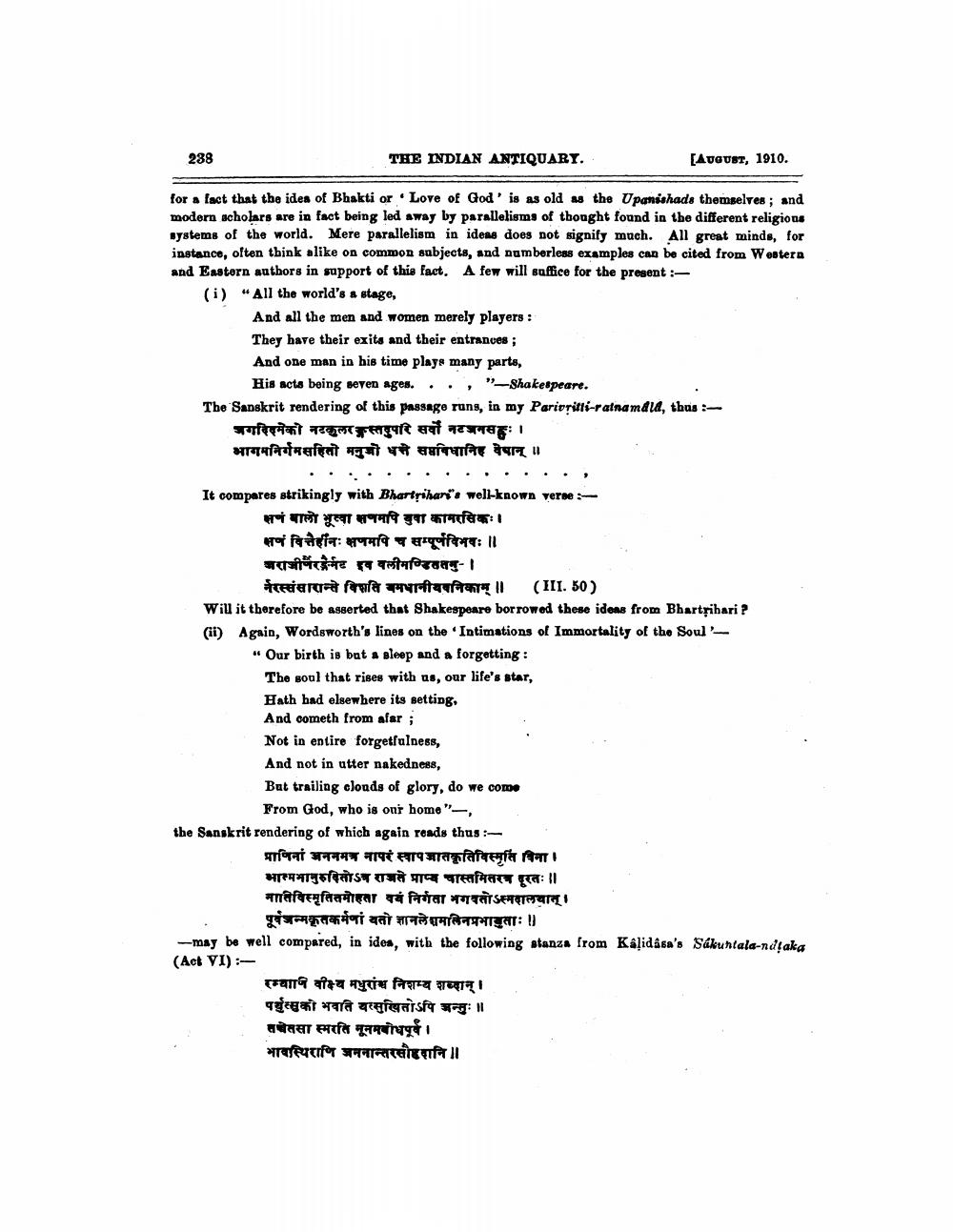________________
288
THE INDIAN ANTIQUARI.
[AVOUST, 1910.
for a fact that the idea of Bhakti or Love of God' is as old as the Upanishads themselves; and modern scholars are in fact being led away by parallelisms of thought found in the different religious systems of the world. Mere parallelism in ideas does not signify much. All great minds, for instance, often think alike on common subjects, and numberless examples can be cited from Western and Eastern authors in support of this fact. A few will soffice for the present : (i) *All the world's a stage,
And all the men and women merely players : They have their exits and their entrances ; And one man in his time plays many parts,
His acts being seven ages..., "-Shakespeare. The Sanskrit rendering of this passage runs, in my Paritritti-ratnamdid, thus :
अगदिदमेको नटकुलरकृस्तदुपरि सर्यो नटजनसः । भागमनिर्गमसहितो मनुजो धने सप्तविधानिह वेषान् ॥
It compares strikingly with Bhartrihant's well-known verne
सनं बालो भूत्वा क्षणमपि बुवा कामरसिकः। सर्व वित्तहीनः क्षणमपि च सम्पूर्णविभवः॥ जराजीरङ्गैर्मट इव वलीमण्डिवतनु-।
नरस्संसारान्ते विशति बमभानीयवनिकाम् ॥ (III. 30) Will it therefore be asserted that Shakespeare borrowed these ideas from Bhartrihari? (ii) Again, Wordsworth's lines on the Intimations of Immortality of the Soul
"Our birth is bat asleep and aforgetting:
The soul that rises with us, our life's star, Hath had elsewhere its setting, And cometh from afar ; Not in entire forgetfulness, And not in utter nakedness, But trailing clouds of glory, do we como
From God, who is our home"-, the Sanskrit rendering of which again reads thus:
प्राणिनां अननमत्र नापरं स्वापजातकृतिविस्मृति बिना। भास्मभानुरूदितोऽवराजते प्राप्यचास्तमितरब दूरतः॥ मातिविस्मृतितमोहता वयं निर्गता भगवतोऽस्मदालवान् ।
पूर्वजन्मकृतकर्मणां बतो ज्ञानलेशमलिनप्रभाबुताः।। --may be well compared, in idea, with the following stanza from Kalidasa's Sakuntala-ndtaka (Act VI):
रम्बाले वीक्ष्य मधुरांश्च निशम्य शब्दान् । पर्वासको भवति यत्सुखितोऽपि जन्नुः॥ तचेतसा स्मरति मूनमबोधपूर्व । भावस्थिराणि जमनान्तरसौहानि॥




